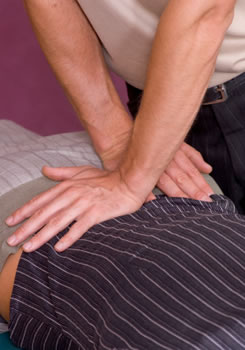nalco group
bone, muscle & joint pain physio
BOOK NOW / WHATSAPP ABOUT YOUR PAIN OR INJURY
- NOVENA 10 Sinaran Drive, Novena Medical Center #10-09, Singapore 307506
- TAMPINES 9 Tampines Grande #01-20 Singapore 528735
- SERANGOON 265 Serangoon Central Drive #04-269 Singapore 550265
Home > Blog > Physio & Hand Therapy > Conditions > Exercise Therapy > Is Cracking Your Joint Harmful?
Is Cracking Your Joint Harmful?

Ah...this is a fairly ambiguous and tricky question - many of us do enjoy when we crack our joints such as
- knuckle joints
- neck joints
- back joints
Patients often ask us...
why is there the cracking or popping sound when i crack my joints?
The "pop" of a cracked knuckle is caused by bubbles bursting in the synovial fluid — the fluid that helps lubricate joints.
The bubbles pop when you pull the bones apart, either by stretching the fingers or bending them backward, creating negative pressure.
One study's authors compared the sudden, vibratory energy produced during knuckle cracking to "the forces responsible for the destruction of hydraulic blades and ship propellers."
Source: https://www.health.harvard.edu/pain/does-knuckle-cracking-cause-arthritis
will it cause harm or arthritis to my joints?
Generally, studies show that cracking joints or knuckles do not lead to arthritis (such as osteoarthritis)....BUUUUUUUUT!
Word of caution: In this article https://www.health.harvard.edu/pain/does-knuckle-cracking-cause-arthritis, it indicate that
- there are at least 2 published reports of injuries where people were trying to crack their knuckles
- chronic knuckle-cracking may lead to reduce grip strength
So there's potential risk of injury as one tries to crack a joint, and there is a possibility of reducing strength in the joint.
another thing, if you feel pain or instability whilst popping your joint...
You need to come to see us as soon as you can.
Patients who experience pain in the joints or instability when they try to crack or pop their joints usually means some possibility of joint damage or wear-and-tear in:
- ligaments - the ligaments are the strong structures that holds bones together, and these can be damaged by over-stretching or over-straining them beyond what they can take
- cartilage - the cartilage is a strong, flexible connective tissue that protects your joints and bones. It acts as a shock absorber throughout your body
- meniscus - our meniscus is a c-shaped pad of cartilage in the knee that acts as a shock absorber
- joint disc - the articular disc (or disk) is a thin, oval plate of fibrocartilage present in several joints which separates synovial cavities. This separation of the cavity space allows for separate movements to occur in each space
- muscle - a band or bundle of fibrous tissue in a human or animal body that has the ability to contract, producing movement in or maintaining the position of parts of the body.
We will assess and diagnose the cause of the pain or instability, and create a personalized physiotherapy or hand therapy plan for your full recovery.
let us help you strengthen and protect your joints
If you have been cracking your joints for sometime now, and you feel that the cracked joints aren't painful, but seems to be not as strong as before (or as you like it to be), then you can consider coming in to see our physiotherapists or hand therapists to
- build strength of your muscles and joints
- restore the joint suppleness and range of motion
